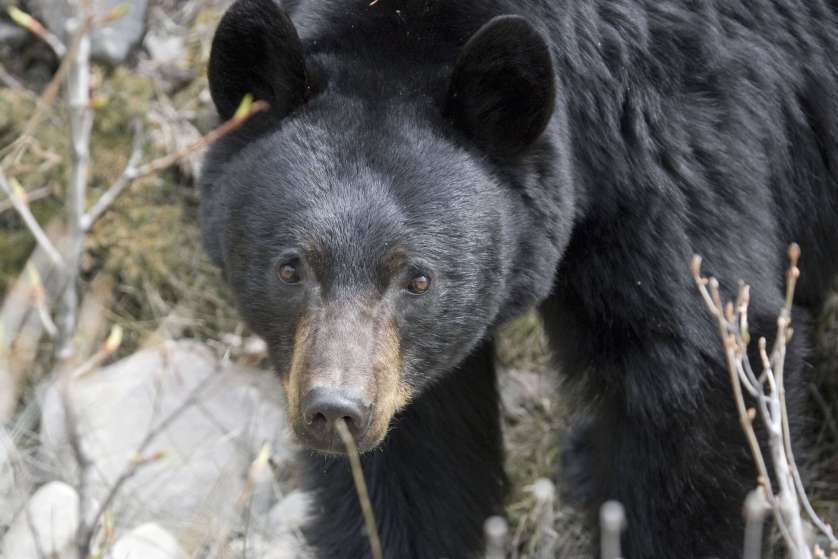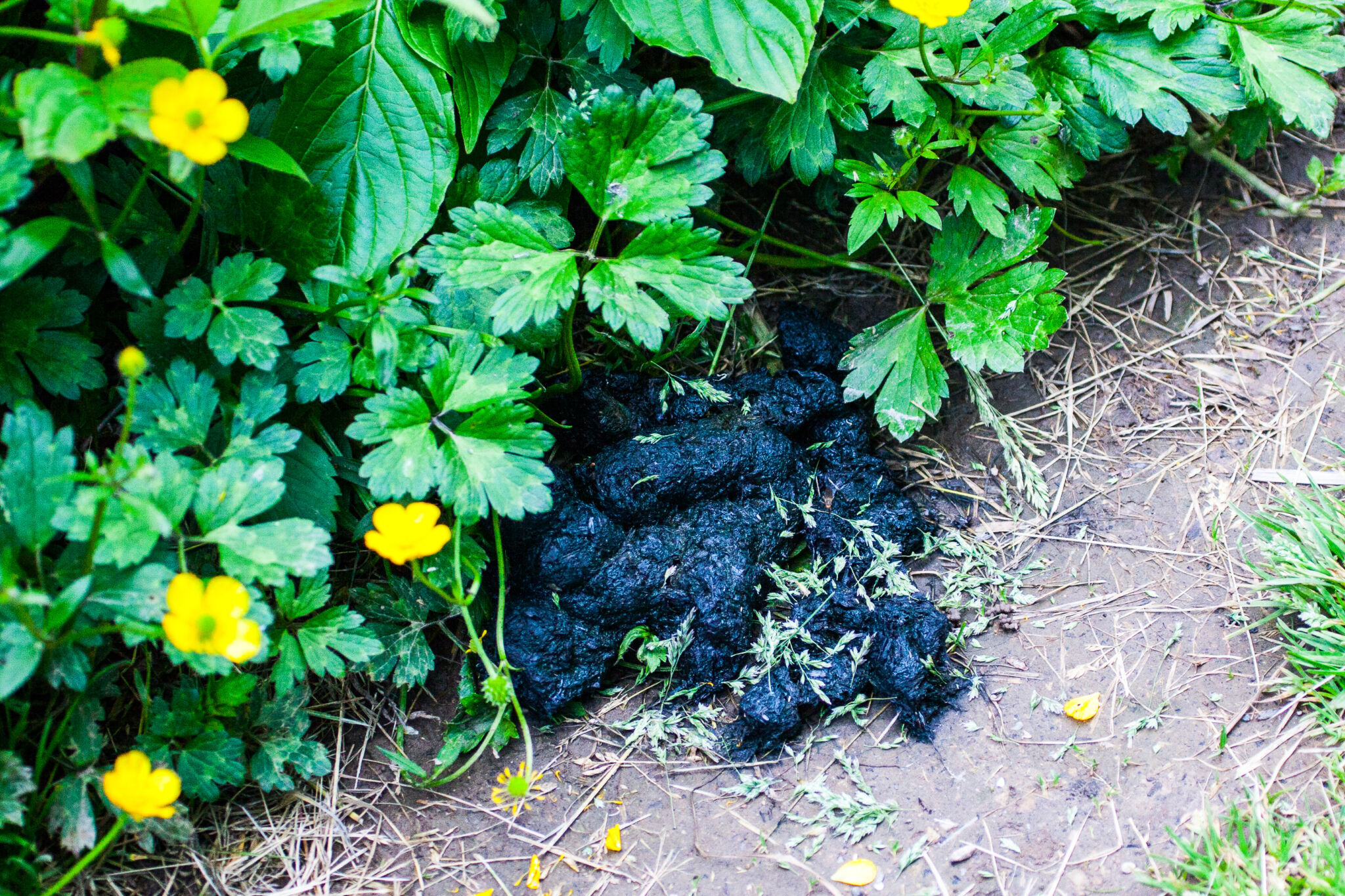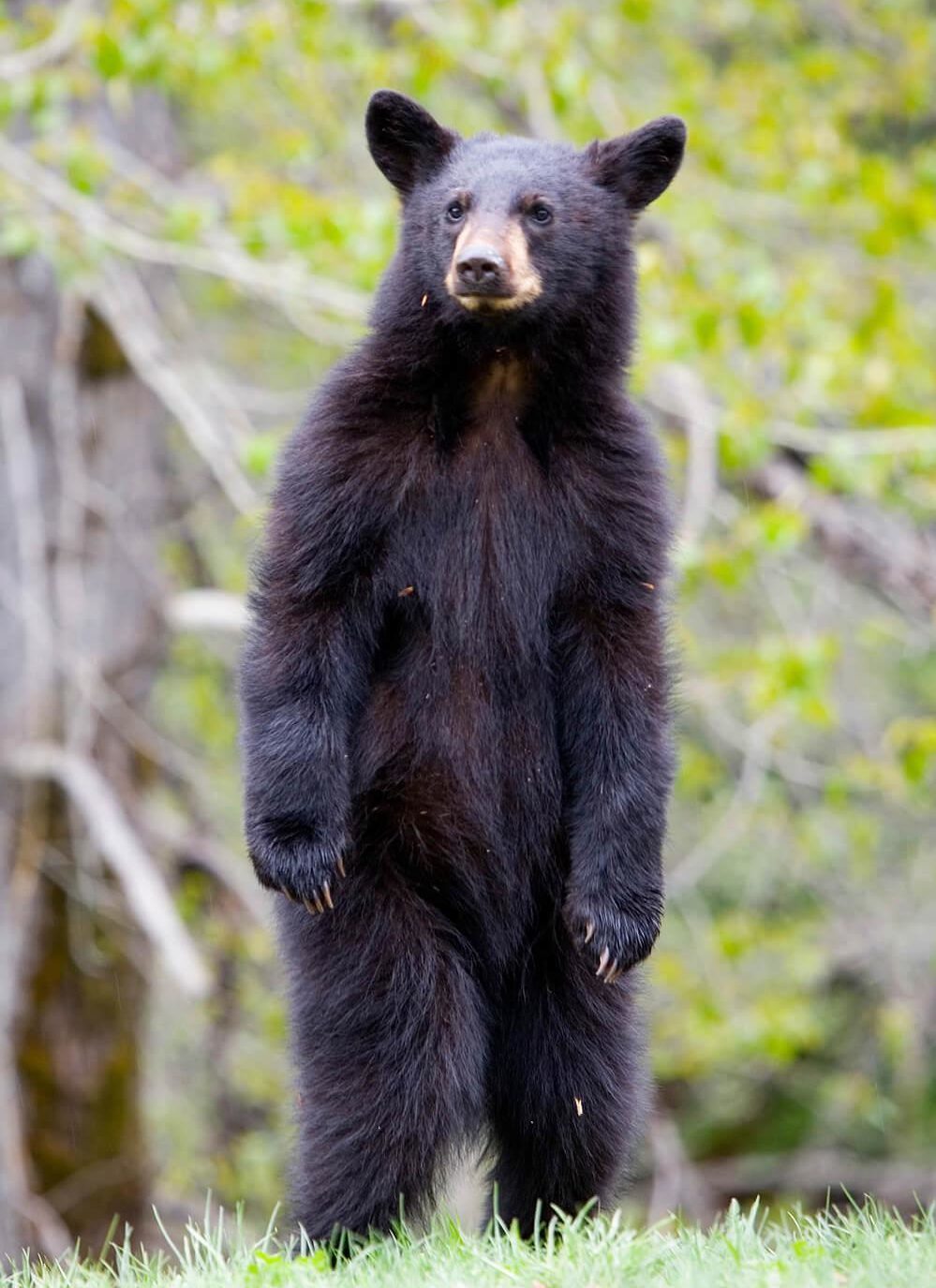
Author: Christopher Myles, Conservation Officer
The forests of the National Capital Region are home to black bears. While they generally avoid people, there’s a chance you may come across one during your outings. That’s especially true in areas like Gatineau Park and the Greenbelt.
Keep reading to learn how to prevent black bear encounters and what to do if you come across one.
How to prevent encounters with black bears
Black bears co-exist with the millions of people who move through their habitat every year. In my experience, there is very rarely an issue.
But, while black bears typically steer clear of people, you also have a role to play in avoiding them. Here are our top tips to prevent bear encounters.
Travel in groups
Hiking in groups makes you look larger and more intimidating to bears. If you wander into the forest alone, let someone know where you are going and when you plan to return.

Stay alert
Bears are more active in the spring and the fall and at dawn and dusk. Always be aware of your surroundings. Look for signs of bears such as fresh scat or droppings, torn-up logs or overturned rocks. Its also best to avoid wearing headphones.
Make noise
Bears don’t like surprises. Signal your presence by making noise to let them know you’re in the area. In areas where there is a lot of background noise, such as from a babbling brook, highway or waterfall, you may want to be louder to make your presence known.
- Do: talk, whistle or sing. Some people also attach a small bell to their backpack.
- Don’t: scream or blast music from speakers.
Always keep your dog on a leash
Dogs at large can unintentionally provoke bears by barking, chasing or approaching them, and then lead them back to you, putting you both at risk.
Manage waste and odour
Food or scented items can attract bears. Always take your garbage with you until you find a place to properly dispose of it. Leaving garbage, even degradable items like apple cores or orange peels on the side of the trail, can attract bears.
When camping, it’s especially important to manage odours properly:
- Store all food and scented items like toothpaste or deodorant away from your tent, in the trunk of your vehicle.
- Close windows before leaving for an outing, including those in trailers and pop-top roofs (e.g. Westfalia).
- Keep any garbage in your trunk until you are ready to dispose of it in a waste bin and do so before nightfall.
- At La Pêche Lake, hang your food, garbage and other items with the lifting pole provided at each canoe-camping site.
- Do not eat inside your tent.
- Wash dishes promptly.
- Never feed wildlife.
You have an essential role in in keeping black bears and other wild animals away from your yard. Here are a few tips to manage house odours properly:
- Keep leftovers in the freezer until waste collection day.
- Put waste out on the curb only on the morning of pickup day, not the night before.
- Put food waste in garbage containers with locking lids.
- Do not leave food outdoors, including pet food.
- If you have fruit trees on your property, regularly pick up any fallen fruit.
- Put away bird feeders in months that bears are active.
- Thoroughly clean your barbecue.
Curious, defensive or predatory?

If you happen to come face to face with a black bear, pay attention to its behaviour. The way a bear acts can give you a clue about what is going on.
- Curious: The bear will stand up on its hind legs to see better, lifting its nose to smell.
- Defensive: A defensive bear will make its teeth chatter, blow loudly, hit the ground or objects with its paws, or charge or bluff-charge. This shows that it feels scared or threatened.
- Predatory: A predatory bear follows you with interest (often from behind) and keeps its head low while flattening its ears and protruding its lower lip. Predatory bears are calm, deliberate and quiet. This is a very, very rare behaviour that shows none of the signs of a curious or defensive bear.
Please report bear sightings to the Contact Centre.
What to do in case of an encounter
Whether the bear is curious or defensive, the first thing to do is to stay calm and show the bear you are human. Although each encounter is different, the following advice is helpful to keep in mind:
- Speak to the bear in a calm and assertive voice. Try using a normal tone of voice (not pitchy or panicked) and repeating something like “whoa bear.”
- Wave your arms in the air methodically and make yourself look as big and tall as possible.
- Give the bear the opportunity to flee and make sure you are not between a female and her cubs.
- Back away slowly without running and keep the bear in your sights without looking directly into its eyes.
- If you have small children, pick them up.
If a black bear attacks
It is extremely rare for black bears to attack humans. In fact, you are more likely to be hit by lightning than to be attacked by a black bear.
In case of an attack:
- Do not play dead. This technique may work if you’re facing a grizzly bear, but it probably won’t work with a black bear.
- Do not run, swim or climb a tree. The bear is faster than you at all of these.
- Defend yourself. Fight, yell and throw rocks or sticks at its face, if possible. An energetic and vigorous defence increases your chances of making the black bear leave.
If you see a bear behaving in a way that could put people at risk, contact the NCC emergency line at 613-239-5353.
You may cross paths with a black bear in nature, but it shouldn’t keep you from going on adventures. Follow the tips outlined above to reduce the risk of meeting a bear and be prepared to react calmly if you do.
With the right precautions and knowledge, you can enjoy the outdoors in the National Capital Region while keeping wildlife and yourself safe.